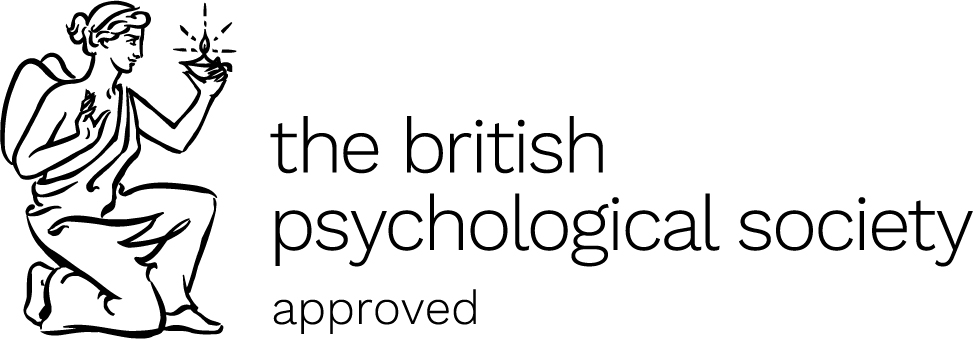
Course Brief
CLICK HERE TO BOOK
This course forms part of the following certificate:
The course can also be taken as an independent online masterclass.
A six-hour masterclass with Professor Nuno Ferreira on the application of Acceptance and Commitment Therapy (ACT) in the treatment of eating disorders and obesity. This masterclass will examine how the ACT approach to eating disorders and obesity differs from other contemporary models and will provide guidance on effectively supporting clients using ACT principles.
CLICK HERE TO BOOK
This course forms part of the following certificate:
The course can also be taken as an independent online masterclass.
In this 6-hour masterclass, we will explore how Acceptance and Commitment Therapy (ACT) conceptualises dysregulated eating behaviour in the context of eating disorders (EDs) and obesity, and how it proposes to address these challenges. Particular attention will be given to the contextual behavioural model of formulation as a means of understanding the role of key risk factors—such as perfectionism, weight concern, and low self-esteem—in the development, maintenance, and treatment of EDs and obesity.
We will then introduce a set of ACT-consistent intervention skills targeted at these specific features, and discuss how they can be integrated into your existing clinical practice.
The evidence base supporting the application of ACT in the treatment of EDs and obesity will also be examined.
Day 1:
- Risk factors for EDs and obesity
- Formulating with ACT for EDs and obesity
- Setting a growth agenda (changing the metrics of success)
Day 2:
- ACT skills in EDs and obesity
- Existing protocols for different presentations
- Evidence base of ACT for EDs and obesity
Learning outcomes:
By the end of this masterclass, you should:
- Be able to produce an ACT-consistent formulation for an EDs or obesity case
- Be confident in the use of key intervention techniques using the ACT model for EDs and obesity
- Be aware of the evidence base for the use of ACT for EDs and obesity
CLICK HERE TO BOOK
This Course is now available as a full recording with an online test via SDS Online Video Training (OVT).
Title: ACT for Working with Eating Disorders and Obesity – Masterclass with Professor Nuno Ferreira
Modality: ACT
CPD Hours Attached: 6 CPD Hours
CLICK HERE TO BOOK
Advisable, but not essential to have some working knowledge of ACT.
Recommended course in preparation for this Masterclass:
Acceptance & Commitment Therapy | ACT Introductory Course
Acceptance and Commitment Therapy (ACT) is a third-wave cognitive-behavioural therapy that focuses on psychological flexibility, helping individuals engage with their values rather than attempting to control or eliminate distressing thoughts and emotions. In the context of eating disorders and obesity, ACT offers a promising approach by shifting the focus from weight control and food-related struggles to a broader, values-driven life.
One of the key mechanisms of ACT in addressing eating disorders, such as anorexia nervosa, bulimia nervosa, and binge-eating disorder, is the cultivation of acceptance. Individuals with these conditions often experience intense psychological distress related to body image, self-worth, and food-related thoughts. Traditional interventions may encourage cognitive restructuring to challenge distorted beliefs, whereas ACT helps individuals acknowledge these thoughts without becoming entangled in them. Mindfulness practices play a crucial role, enabling individuals to observe their thoughts and emotions with detachment rather than reactivity.
Cognitive Defusion, another core ACT principle, is particularly useful for disempowering negative self-talk related to food, body image, and self-esteem. By recognising that thoughts such as "I am a failure because I overate" are simply cognitive events rather than objective truths, individuals can reduce their emotional impact. This process allows for greater flexibility in behaviours, diminishing the cycle of restriction, bingeing, and compensatory behaviours common in eating disorders.
ACT also promotes committed action aligned with personal values. Many individuals with eating disorders and obesity struggle with an overemphasis on weight control as a defining aspect of self-worth. Instead of reinforcing rigid dieting or exercise regimens, ACT encourages engagement in behaviours that align with broader life goals, such as nurturing relationships, pursuing meaningful hobbies, and fostering self-compassion. This shift reduces reliance on food-related control mechanisms while promoting sustainable, health-focused behaviours.
For obesity management, ACT moves beyond traditional weight-loss paradigms that emphasise willpower and restriction. It recognises that emotional and habitual eating patterns often serve as coping mechanisms for distress. By fostering acceptance of discomfort and emotional states, ACT helps individuals reduce avoidance-based eating behaviours. Additionally, values-driven action encourages physical activity and nutritional choices rooted in well-being rather than punishment or control.
Overall, ACT provides a compassionate and flexible framework for treating eating disorders and obesity, addressing the underlying psychological struggles rather than merely targeting symptoms. By fostering acceptance, mindfulness, and values-based living, ACT helps individuals build a healthier, more fulfilling relationship with food and their bodies.


